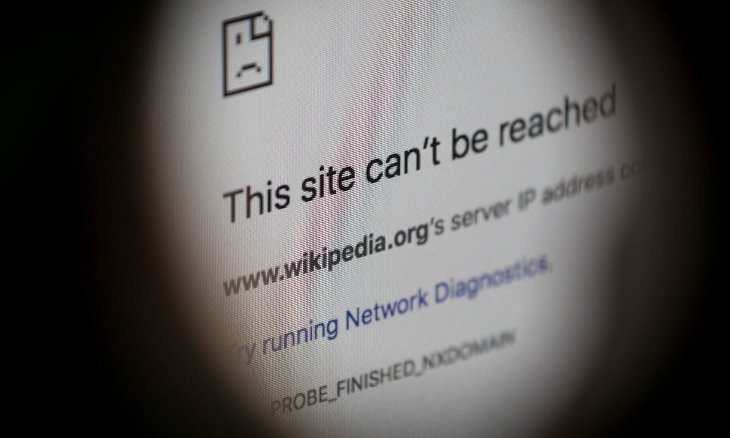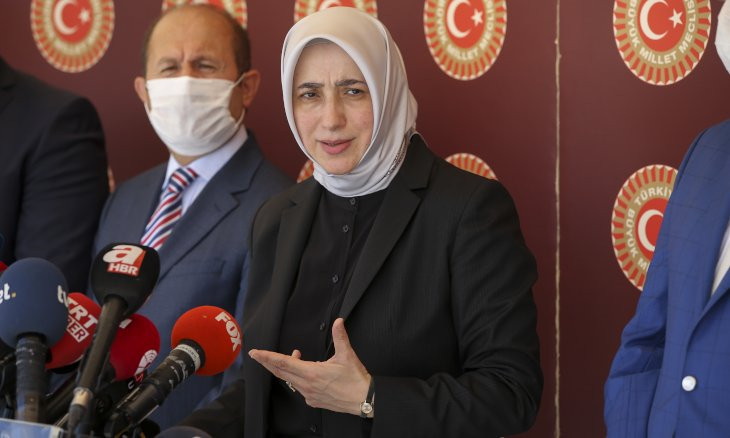Turkish parliament passes law to regulate social media amid censorship criticism
Turkey's parliament passed a law regulating social media on July 29, that critics said will increase censorship and help authorities silence dissent. The law requires foreign social media sites that have more than 1 million daily visitors in Turkey to appoint Turkish-based representatives to address authorities' concerns over content and includes deadlines for removal of material they take exception to.
Duvar English
Turkey's parliament passed a law regulating social media on July 29, that critics said will increase censorship and help authorities silence dissent.
President Recep Tayyip Erdoğan's ruling Justice and Development Party (AKP), which has a majority in parliament with its allied Nationalist Movement Party (MHP), backed the bill.
The assembly began debating the new legislation on July 28, and its passage was announced by parliament on Twitter.
On July 1, Erdoğan vowed to control or shut down certain social media platforms after his daughter Esra Albayrak was insulted on Twitter.
He said that the government was preparing to create a new legal framework for social media with the aim to “abolish such platforms completely or to [have them] be controlled.”
 Internet censorship increasing in Turkey, report reveals
Internet censorship increasing in Turkey, report revealsIn the following days, AKP officials said that a draft regulation with nine articles was already ready, but that further evaluation was ongoing in order to comply with international legislation in this field.
The law that was backed in parliament requires foreign social media sites that have more than 1 million daily visitors in Turkey to appoint Turkish-based representatives to address authorities' concerns over content and includes deadlines for removal of material they take exception to.
If the representative will be a real entity, not a legal one, it has to be a Turkish citizen, according to the law.
 Human Rights Watch slams Turkey's social media law over censorship
Human Rights Watch slams Turkey's social media law over censorshipSocial network providers would have 48 hours to respond to orders to remove content deemed "offensive."
Providers will also take necessary measures to store data on users in Turkey inside the country and will present reports including statistics to the Communication Technologies Authority (BTK) every six months.
Heavy fines
Companies could face fines, the blocking of advertisements or have bandwidth slashed by up to 90 percent, essentially blocking access, under the new regulations.
Previously, fines were between 10,000 -100,000 Turkish lira ($1,500 - $15,000), but the amount would now be between 1 million - 10 million lira ($146,165 - $1,461,650).
The law will enter into force on Oct. 1.
As a majority of Turkey's mainstream media has come under government control over the past decade, people in Turkey have taken to social media and smaller online news outlets for critical voices and independent news.
People are already heavily policed on social media and many have been charged with insulting Erdoğan or his ministers, or criticism related to foreign military incursions and the handling of the novel coronavirus.
 Turkey's ruling party submits bill to regulate social media
Turkey's ruling party submits bill to regulate social mediaAhead of the bill's passage, a spokesperson for the U.N. High Commissioner for Human Rights said the draft law "would give the state powerful tools for asserting even more control over the media landscape."
Presidential spokesman İbrahim Kalın said the bill would not lead to censorship but would establish commercial and legal ties with the social media platforms.
Turkey was second globally in Twitter-related court orders in the first six months of 2019, according to the company, and it had the highest number of other legal demands from Twitter.
Erdoğan has repeatedly criticized social media and said a rise of "immoral acts" online in recent years was due to lack of regulations.
 Erdoğan government's draft bill to turn social media into open prison in Turkey, experts warn
Erdoğan government's draft bill to turn social media into open prison in Turkey, experts warnHuman Rights Watch on July 27 slammed the government's move, saying that it will greatly increase online censorship, particularly in light of the country’s poor record on freedom of expression.
“If passed, the new law will enable the government to control social media, to get content removed at will, and to arbitrarily target individual users,” said Tom Porteous, deputy program director at Human Rights Watch.
“Social media is a lifeline for many people who use it to access news, so this law signals a new dark era of online censorship," he added.
Twitter didn't respond to Turkey's demand of representative: AKP
Hours after the bill was approved, AKP Group Deputy Chair Naci Bostancı said that Twitter is the only social media platform that didn't respond to Turkey's demand of appointing a representative.
"There seems to be a problem there," Bostancı told Habertürk on July 29.
"Most of them accepted appointing representatives," he added.
